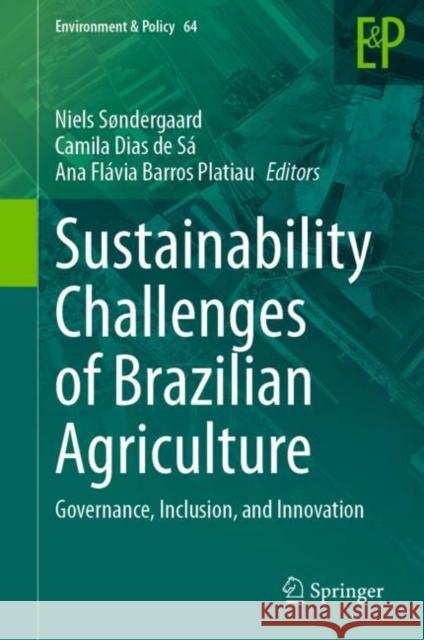Sustainability Challenges of Brazilian Agriculture: Governance, Inclusion, and Innovation » książka
Sustainability Challenges of Brazilian Agriculture: Governance, Inclusion, and Innovation
ISBN-13: 9783031298523 / Angielski
Sustainability Challenges of Brazilian Agriculture: Governance, Inclusion, and Innovation
ISBN-13: 9783031298523 / Angielski
(netto: 210,83 VAT: 5%)
Najniższa cena z 30 dni: 212,02
ok. 16-18 dni roboczych.
Darmowa dostawa!
With contributions from a wide range of thematic areas, this book provides a diverse perspective on the contemporary environmental challenges of Brazilian agriculture. Assessing existing experiences of governance interventions, implementation of inclusive and sustainable production practices, as well as technical innovations, this edited volume presents the reader with a nuanced perspective on sustainable future pathways for Brazilian agriculture. In many cases, actors within the agricultural sector stand in a key position to address environmental concerns, which often has generated important breakthroughs and improvement of production practices. Drawing on contributions from authors within a variety of fields, this contribution presents a trans-disciplinary perspective on the problems and pathways through which multi-level interventions can lead to sustainable solutions within the Brazilian agricultural and livestock sector. This book hereby constitutes an informed and timely contribution to the important debates about Brazil’s potential role in confronting environmental problems. More broadly, this volume also sheds light on the process of agricultural transitions in the Global South, and how food security concerns may be reconciled with sustainable production.
With contributions from a wide range of thematic areas, this book provides a diverse perspective on the contemporary environmental challenges of Brazilian agriculture. Assessing existing experiences of governance interventions, implementation of inclusive and sustainable production practices, as well as technical innovations, this edited volume presents the reader with a nuanced perspective on sustainable future pathways for Brazilian agriculture. In many cases, actors within the agricultural sector stand in a key position to address environmental concerns, which often has generated important breakthroughs and improvement of production practices. Drawing on contributions from authors within a variety of fields, this contribution presents a trans-disciplinary perspective on the problems and pathways through which multi-level interventions can lead to sustainable solutions within the Brazilian agricultural and livestock sector. This book hereby constitutes an informed and timely contribution to the important debates about Brazil’s potential role in confronting environmental problems. More broadly, this volume also sheds light on the process of agricultural transitions in the Global South, and how food security concerns may be reconciled with sustainable production.











